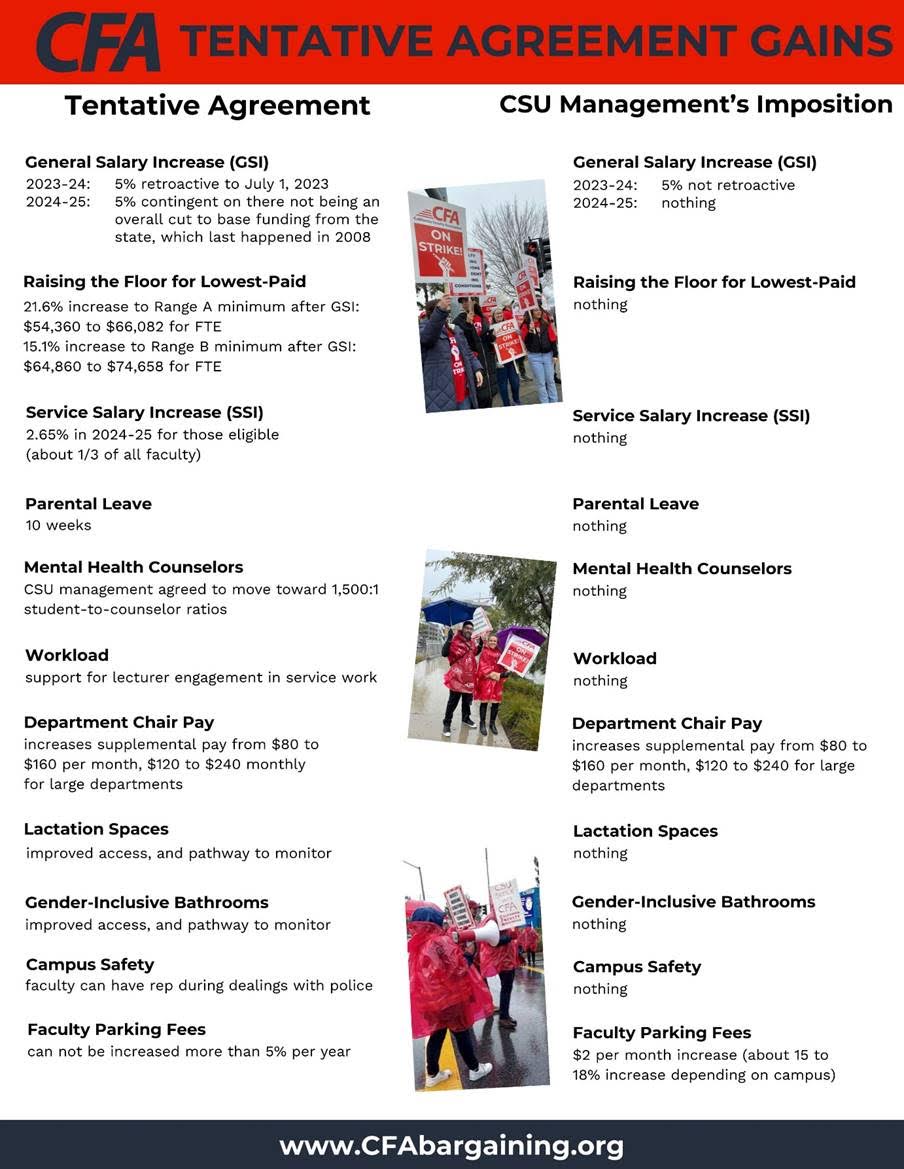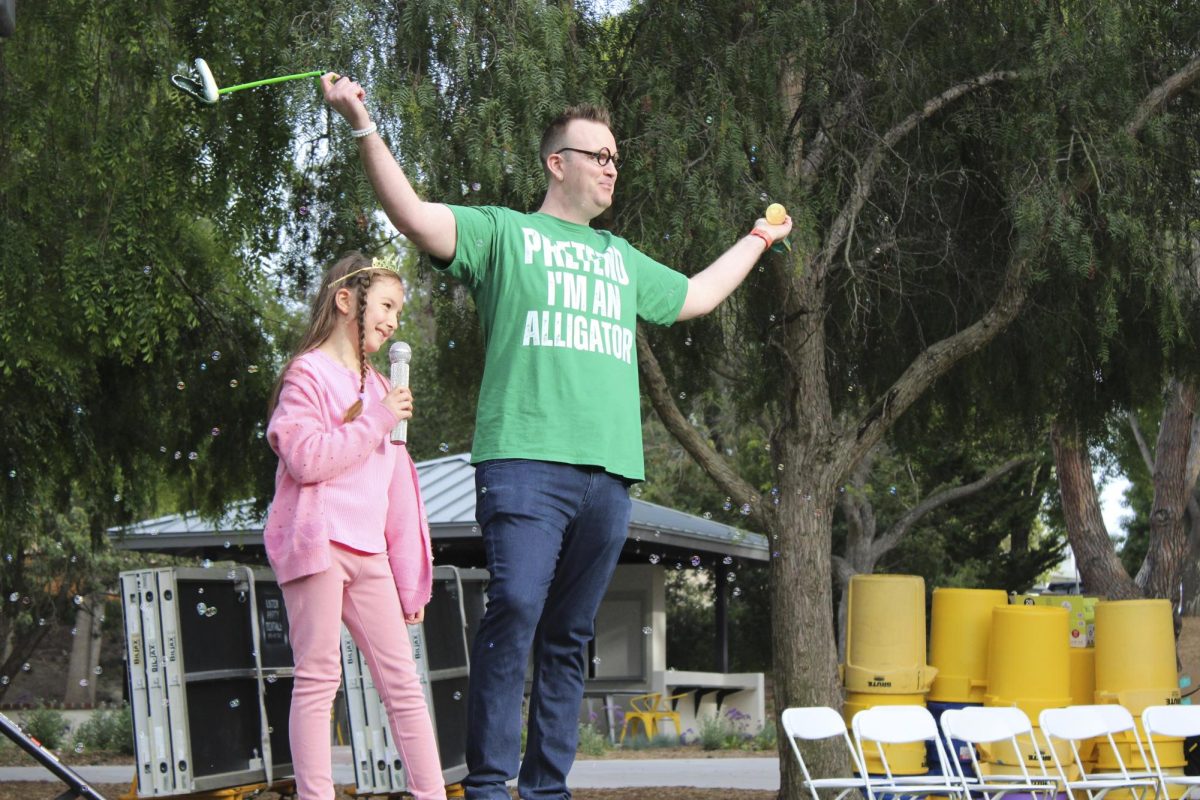California State University students were advised to not cross the picket line in support of their faculty during the California Faculty Association (CFA) strikes held in December and on Jan. 22. Intimidation tactics against students and faculty were utilized by CSU management during the California state-wide strikes affecting students from all 23 CSU campuses.
Surveys from CSU management were emailed to students on Jan. 18, including a reporting form sent by Eboni Ford Turnbow vice president for student affairs at CSU Channel Islands, in which students were invited to report any professors who canceled class due to the strike.
“During the strike, we got emails saying that if one of our professors wasn’t holding their lecture, there was a link to report them,” CSU Channel Islands junior Kimberly Ramos said. “That felt really distasteful in my opinion; really snarky that the CSU wanted us to betray the people that are there for us the most.”
Thomas Corrigan, professor of communication at CSU San Bernardino said there are established mechanisms for reporting students and legally, professors were under no obligation to report if they were participating in the strike or not.
“That was unsettling and also just unnecessary,” Corrigan said. “That sort of, for lack of a better term, snitch encouragement, is the kind of thing that you see in authoritarian systems and not necessarily in democratic spaces.”
Ramos was one of several students who were aware of the CSU management tactics and used her voice to express what she felt was unjust.
“You want us to report them? They have a right to want to have a livable wage,” Ramos said in a response to an email from CSU management.
Corrigan said his students were appalled by the survey link, and many of them responded with bogus reports of imaginary faculty or reported the CSU chancellor’s name and email address.
Michael Ward, a history professor at CSU Northridge said that throughout his 25 years of working in the CSU and community college systems students generally support the faculty and don’t identify with management administration. Ward also said CSU management used some dirty tactics, including sending threats to professors via email and citing the event to visit their classes.
“It’s a way on the part of management to try to intimidate both faculty and students. They hold the purse strings. They control them,” Ward said.
Corrigan said CSU faculty have recently been asked much more aggressively than before to document their time working and time off. He said this aggressive effort is noted as a shift in practices related to the strike.
“Now I think it’s worth noting that I don’t know of any faculty who work only 40 hours a week. Most of us are putting in excessive time and we have not necessarily been documenting that to this point,” Corrigan said.
In an email sent to CSU faculty on Jan. 30, the CFA said the result of the strike was a credit to the power of their union, especially given the small margin of compromise originally posed by management. The CFA also said they will be working with CSU management to ensure tentative agreements will continue to be discussed as the semester continues to progress.
According to an infographic provided by the CFA, the tentative agreements brought about by the strike include a general salary increase, a service salary increase, department chair pay, and the raising of the floor for the lowest paid. In addition, management agreed to adjust the student-to-counselor ratio to 1500:1, and has agreed to not increase parking fees by more than 5% per year.
As of today, CSU administration has not addressed the intimidation strategies applied via email.












